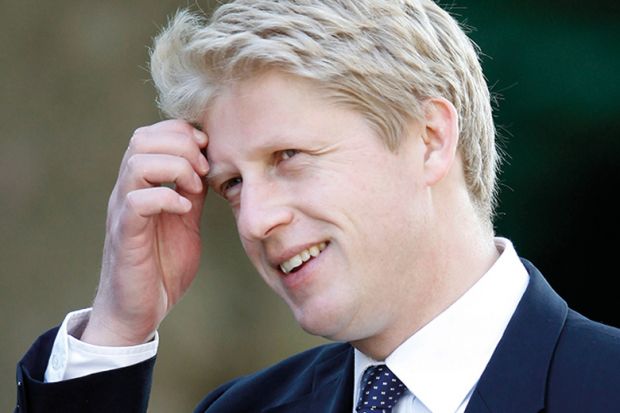The UK government has set up a £100 million fund to attract global researchers in wake of the country’s vote to leave the European Union.
The Ernest Rutherford Fund, announced by universities minister Jo Johnson, will provide fellowships for “highly skilled” early-career and senior researchers from the developed world, and from “emerging research powerhouses” such as India, China, Brazil and Mexico.
Mr Johnson said that the new fund was designed to help the UK to attract “the brightest and best minds” and to maintain its position “as a world leader in science and research”, as the country prepares for Brexit.
He said that Ernest Rutherford, the nuclear physicist and Nobel laureate who came to the UK as an immigrant, exemplified “our vision of a Britain that is open to the best minds and ideas in the world, and stands at the forefront of global collective endeavours to understand, and to improve, the world in which we live”.
“The Rutherford Fund will send a strong signal that, even as we leave the European Union, we are open to the world and will reinforce our ambition of making the UK the go-to country for innovation and discovery,” Mr Johnson said.
The announcement is the latest salvo in the global race to attract and retain academic talent, coming after French president Emmanuel Macron launched a website inviting foreign scientists to apply for research funding in France, enticing them with grants worth up to €1.5 million (£1.3 million) each over four years.
Many have expressed concern that stricter immigration controls and perceived xenophobia after Brexit will lead to fewer foreign scholars coming to the UK.
Mr Johnson announced the fund ahead of a speech by Sir Mark Walport, chief executive designate of UK Research & Innovation, in which he outlined his vision for the country’s new research and innovation funding organisation. The Rutherford Fund will be jointly administered by UKRI and the UK’s national academies.
“These investments are just the start,” Mr Johnson said at the event. “We set out a bold vision of increasing the UK’s R&D levels to 2.4 per cent of GDP within a decade. It will require smart public funding and investment by businesses and new approaches to delivering these goals.
“UKRI will be absolutely central to this process. And it’s my aspiration...that it will, in time, gain a reputation as the world’s best funder of science research and innovation.”
Sir Mark, currently the government's chief scientific adviser, said that UKRI would champion excellent research alongside innovation that delivers real solutions to society’s challenges.
Responding to a question from Venki Ramakrishnan, president of the Royal Society, about whether the incentives for the research community were too focused on publishing in “high-prestige” journals, Sir Mark said that the sector must “wean our addiction” to this and to “judge a piece of research by its content”.
“We are addicted to these so-called high-impact, high-profile journals, and yet we know that a lot of the papers published in them are never actually cited,” he said.
“But surely, the argument is: [one] should read the research rather than read the title of the paper and the journal in which it’s published?
“We have to wean our addiction to a particular mode of publishing in “journal X” as being the arbiter, when all you’re really doing is measuring how referees from a particular journal behave.”
Register to continue
Why register?
- Registration is free and only takes a moment
- Once registered, you can read 3 articles a month
- Sign up for our newsletter
Subscribe
Or subscribe for unlimited access to:
- Unlimited access to news, views, insights & reviews
- Digital editions
- Digital access to THE’s university and college rankings analysis
Already registered or a current subscriber? Login








